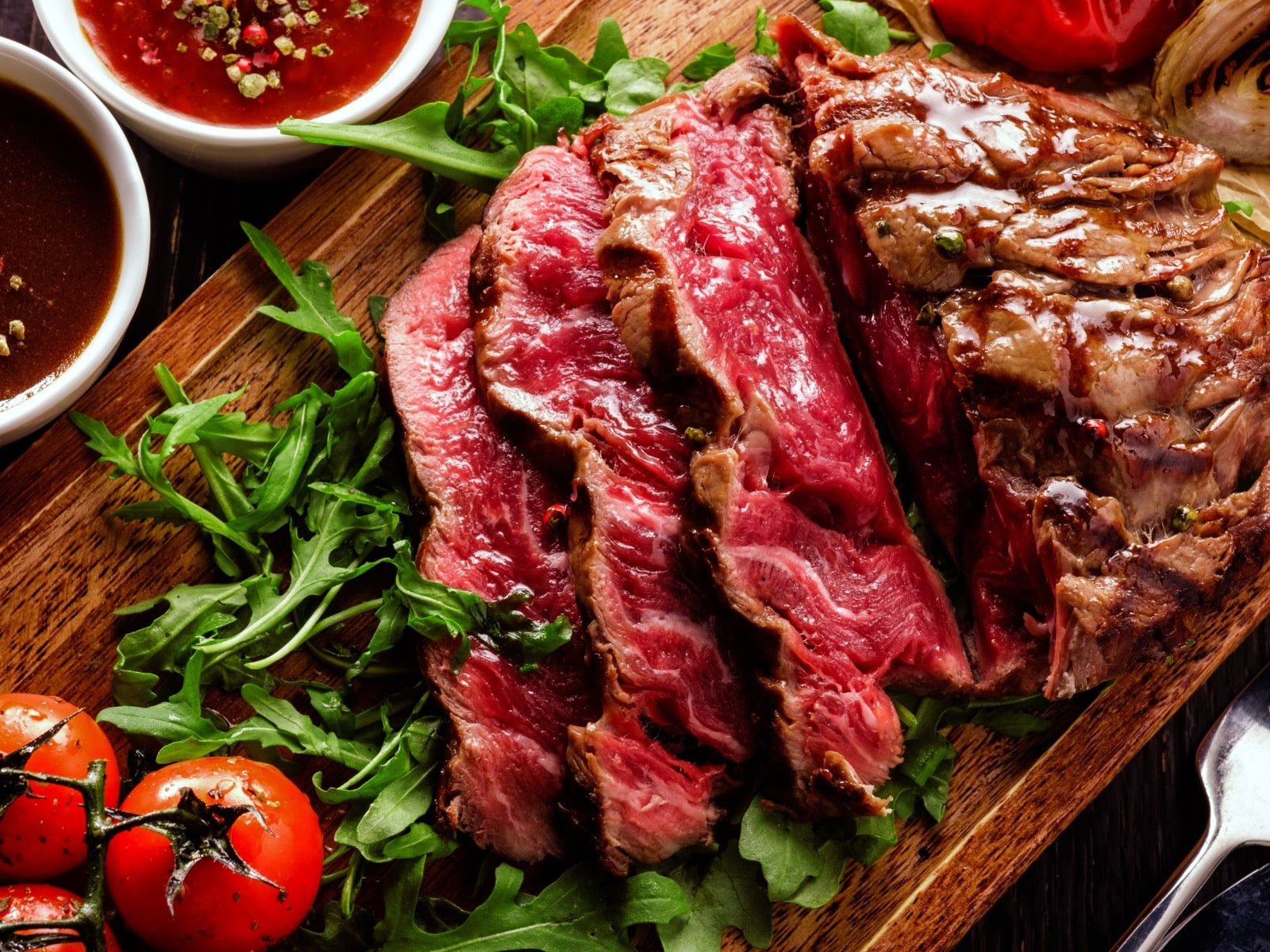


How To Cook Steak Perfectly Without A Meat Thermometer
Have you ever wished that there was an alternative way to tell if steak is cooked the way you want it without using a meat thermometer? Whether it’s because you don’t have one, or because you don’t want to poke a hole and let precious juices leave your steak, there’s another way. It takes a little practice, but once you have it down you’ll only find yourself reaching for the meat thermometer when you’re cooking something big like a roast. You’ll feel like an expert chef and enjoy getting more hands on in the kitchen. Plus, you’ll never again find yourself without a meat thermometer and having to cut into a steak to assess its doneness.
Also Read: Bison Tomahawk Steaks: Our Most Sought After Cut Of Meat
It’s important to be aware of what type of steak you’re cooking. Cuts with higher fat content, like a ribeye, will take a little longer to cook. On the flipside, a lean filet mignon will cook very quickly. For this same reason, lean meats like bison and elk cook more quickly than pork or beef, which naturally contain more fat. We always recommend cooking your bison and elk steaks less than you would beef. We’ve found that even people who prefer beef steaks cooked to a higher level of doneness will enjoy a bison or elk steak cooked to medium or even medium rare. However, remember that it is never safe to eat pork, wild boar or chicken that has not been cooked all the way through.
The Finger Trick For Cooking Steaks
The trick is to get used to the amount of give there is when you gently press the surface of meat cooked at different temperatures. With a relaxed palm, gently press the fleshy area of your hand between the thumb and forefinger. The amount of give you feel here is very similar to the way that a steak will feel when it’s completely raw. Gently press the tip of the thumb and forefinger together and press into the same fleshy area. This is approximately what rare steak will feel like. Do the same thing with the tip of the thumb and middle finger pressed together for medium rare, the ring finger and thumb for medium, and the pinky finger and thumb for well done.
Also Read: The New York Strip: The Goldilocks of Premium Steaks
Rare Steak

Rare steak is characterized by a light sear on the outside. The meat should be warm in temperature almost all the way through, but bright red and cool in the middle. About 70% of the steak should be red with a bit of brown around the edges. Many people love the primal quality of eating a steak cooked rare - it’s only a small step away from eating raw meat. For this same reason, other people feel like a rare steak is simply not cooked enough for their taste.
Medium-Rare Steak

Steak cooked medium-rare is my personal favorite. It has a nice sear on the outside and pink to red in the middle - more cooked than the rare steak but still retaining all of the flavor and juicy tenderness. About 50% of the inside of the steak is red to pink, with a larger amount of browned meat around the edges from the slightly longer searing time. This also allows more of the fat marbling in the steak to melt and render into the meat, giving it a richer flavor and more tender texture than a rare steak.
Also Read: How To Cook Delicious Steak Using Only An Instant Pot
Medium Steak

A medium steak is just what it sounds like - right in the middle. There will be a deeper sear on the outside of the steak and only about 25% pink inside. There is no redness left at all with a steak cooked to medium doneness. This is where the steak starts to become slightly chewier in texture and less juicy. Most of the meat inside is cooked through and brown. However, it still has great flavor and many people who don’t want any true redness or “bloodiness” in their steak prefer it cooked this way.
Also Read: How To Make A Perfect Marinade For Supremely Tender Steak
Medium-Well Or Well-Done Steak (We Never Recommend This)

Steak cooked medium-well will exhibit only a tiny bit of pink inside. It loses significant moisture with this much cooking, and will not be nearly as tender as a steak cooked for less time. The meat will lose a lot of flavor and become somewhat dry. A well-done steak is cooked even more, with a charred exterior and absolutely no hint of pink inside. Many people refer to a well-done steak as a waste of meat, but some people simply prefer it. Steaks cooked to this level of doneness should be prepared over low heat to prevent the meat from getting tough as much as possible.

The Incredible Wild Alaskan Halibut, Steak Of The Sea
Wild Alaskan Halibut are one of the largest flatfish in the Pacific Ocean. Flatfish have a flat body type and swim sideways, with both eyes on the top side of their body. They mostly dwell on the bottom of the ocean. Interestingly, when they first hatch they swim upright like most fish, with one eye on each side of their head.






